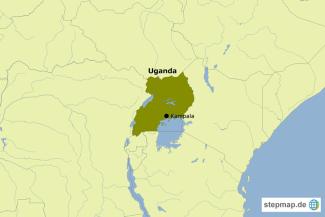Gender
Robbing widows of their land

In most of the farms, women plough the soil. They plant, weed and harvest. But it is the men who later take charge of selling.
Ugandan women access and use the land for cultivation, but they don’t own the soil they till. Under customary law of tribes like the Langi and Acholi in Northern Uganda, every piece of land must be inherited by a son. If a mother only has daughters, her husband is likely to marry a second wife to get sons, and he will send away the first wife and her kids. Thus, property rights are systematically denied to women.
Carolyne Larok is a community development worker in this region. According to her, elders and family heads often take advantage of customary law to deny women access to land. They argue that women are supposed to get married and will leave the community. Larok says that increasing land disputes are making the situation of women worse. The decisions of local authorities, she adds, are driven by financial interests.
Things are particularly tough for widows, and many women have lost husbands during the two-decades-long rebellion of the Lord’s Resistance Army (LRA). Widows inherit some land, but the lion’s share of the property is managed by her husband’s brother. Widows really only control about 15 % of the inherited land. Many are chased from their farms by relatives who rob them of their only means of survival. “When a widow returns to her parents’ home, people there will tell her to go back to her husband’s home because she has so many children,” Carolyn adds.
According to the Federation of Women Lawyers (FIDA), there are many cases of widows who are denied their rights by their husband’s relatives. Many cases are pending, and others are never brought to court.
Jane Lilly Obwoyo, a woman leader from the Acholi tribe in Northern Uganda, says that denying women property disempowers them. Many are fearful and take timid decisions. Obowoyo says things are basically as they were in the 1950s when women were “only meant to stay in the kitchen, provide sex and have children.” The result, she says, it that “women continue to remain in the background while their husbands take the important decisions.”
Gloria Laker Aciro heads the Peace Journalism Foundation of East Africa. She lives in Uganda.
glorialaker@gmail.com
Links:
Federation of Women Lawyers (FIDA) Uganda:
http://www.fidauganda.org/











